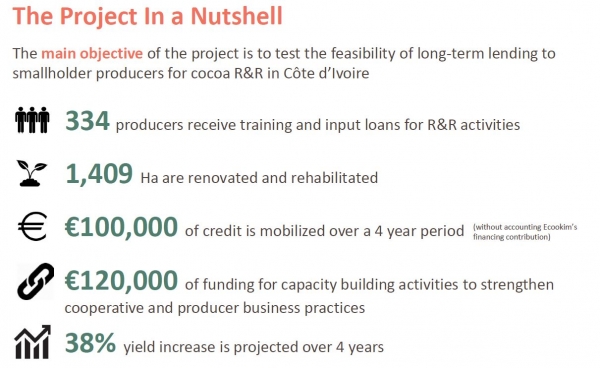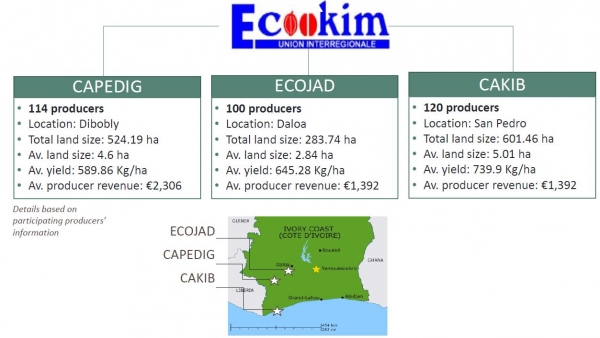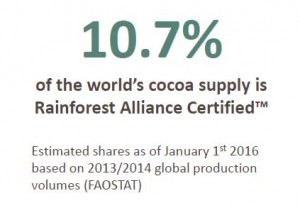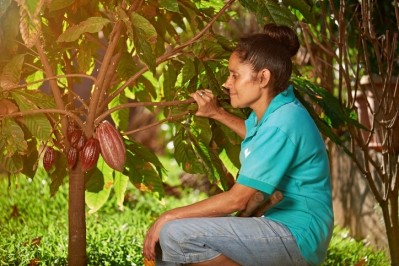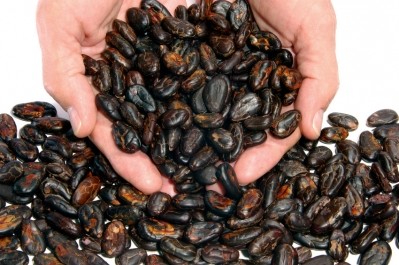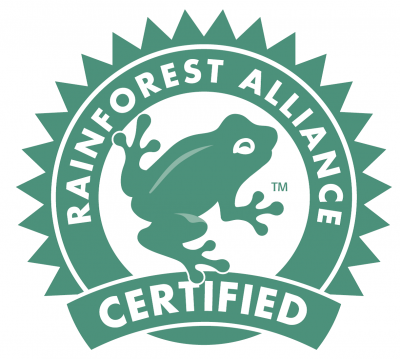Sustainable cocoa sector needs long-term credit access for farmers: Rainforest Alliance
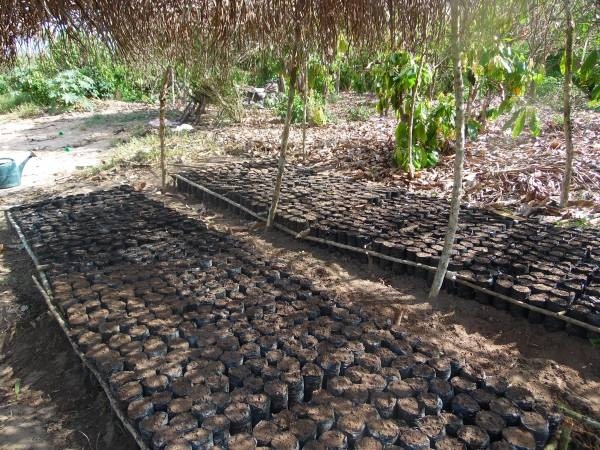
A lack of access to credit prevents farmers investing in their farms and improving yields that could raise their income and potentially bring them out of poverty, says RA.
The industry does help farmers obtain access to finance, but usually on a ‘short-term’ basis of around six months.
Long-term vision
Helene Roy of the Rainforest Alliance's Sustainable Finance Initiative told ConfectioneryNews: “These chocolate companies have programs in place and are thinking about financing, but our perspective is about adding a long-term vision rather than this short-termism.”
She said many trees in top cocoa-producing nation Côte D’Ivoire needed to be replanted and would take one-and-a-half to three years to be fully productive.
Short-term six-month credit allows no time for cocoa farmers to repay the renovation loan, she said.
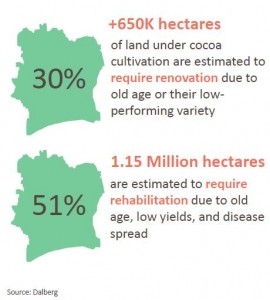
Four year loans
RA has been working on a pilot project in Côte D’Ivoire it calls ‘Cocoa Renovation & Rehabilitation’ (R&R), which is a project to result in almost 40% yield increases.
It is based on securing four-year loans for farmers to fully renovate their farms with a training component to ensure inputs are used effectively.
“We realized we were engaging with producers on how to implement Good Agricultural Practices (GAP), but sometimes they didn’t have the credit necessary to make it possible,” said Roy.
“Producers could not invest in small equipment and other inputs,” she said.
RA says credit access remains a huge problem for all agricultural crops with which it works, including palm and coffee.
What is industry currently doing?
Roy said in Côte D’Ivoire, cocoa farmers had enjoyed some access to inputs from government programs such as fertilizer and seedlings. “But the quantity was minimal. It wasn’t necessarily enough to cover their needs and they weren’t using it properly,” she said.
Big buyers in the country have provided some inputs and still do. Chocolate players are also exploring access to credit under company programs, but Roy said these were mainly on a short-term basis.
“Overall all these initiatives were and still are quite small,” she said.
Pilot in Côte D’Ivoire
RA’s pilot has been in collaboration with farmer’s union ECOOKIM, which represents 12,000 farmers and 23 cooperatives in Côte D’Ivoire.
The certification body began its sustainable finance project with three of ECOOKIM’s cooperatives this year and eventually hopes to roll out the program to all the union’s coops.
RA first assessed the needs of the cooperative by conducting on-site interviews with stakeholders in 2013/14 over a six month period.
It then took another six months to draw up a business plan and approached lenders with a model for rehabilitation to help secure four-year loans.
The finance package will go toward pre-defined inputs such as fertilizer and planting materials.
The pilot project hopes to rehabilitate and renovate 1,400 hectares of cocoa plantations owned by 335 smallholder farmers from 2016 to 2019.
The project is supported by €200,000 ($221,000) project is supported by €100,000 ($110,000) investment from Alterfin.
Combined with training
“Structuring the deal with the lenders wasn’t difficult,” said Roy.
She added that the finance was combined with training from RA.
“Any program that doesn’t combine training doesn’t make sense. It can’t be disassociated,” she said.
She said RA assisted farmers to decide when to chop trees and replant or when to rehabilitate to ensure stable income and yields.
Replicating the model
“This model could be replicated,” said Roy, particularly with organized groups and strong coops.
“The model works very well with big, strong cooperatives with export licenses,” she said. “Unfortunately coops like this are very few.”
RA estimates only between 20 to 30% of producers are part of a cooperative or organized group in Côte D’Ivoire, the world’s leading cocoa producer.
“Producers need to be aggregated in some fashion to allow access to finance,” said Roy. “It’s very difficult and costly to reach farmers individually.”
She said even some organized cooperatives may lack the capacity to secure long-term loans from financial institutions.
“Lenders always say it’s tough to find a cooperative that has a strong infrastructure that they can invest in,” said Roy.
The RA finance chief said the chocolate industry could help by strengthening existing cooperatives and also aggregating the majority of disorganized farmers into strong associations.
Dalberg estimates around $52.7bn will be needed for renovation and rehabilitation (R&R) in the cocoa sector over the next 25 years. It estimates 80% of the land for cocoa cultivation in Côte D’Ivoire requires R&R.
